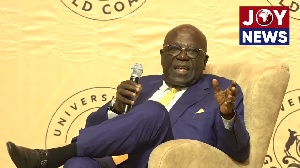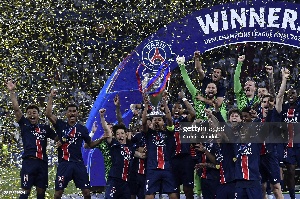- Home - Entertainment
- Lifestyle News
- Year In Review
- Music News
- Entertainers
- Entertainment Archive
- Entertainment Photos
- Jokes
- Entertainment Headlines
- Ameyaw Debrah
- Brown GH
- Celebrities Buzz
- GH Base
- Ghana Celebrities
- Gh Gossip
- GH Page
- GH Splash
- Hot Gossip GH
- YEN
Music of Friday, 9 May 2025
Source: www.ghanawebbers.com
ECOWAS Court dismisses Shatta Wale's discrimination claim against Gaming Commission
The Community Court of Justice of ECOWAS has dismissed a discrimination claim. The claim was brought by Ghanaian musician Shatta Wale against the Republic of Ghana and the Gaming Commission.
The Court ruled against Shatta Wale. He failed to provide enough evidence of differential treatment. He also did not prove any correspondence with the gaming company involved. Additionally, he did not disclose the identity of this gaming company.
Shatta Wale alleged that his right to non-discrimination was violated. He claimed he was prevented from securing an endorsement deal with a gaming company in Ghana.
He argued that his social status and achievements earned him recognition for endorsements. However, he said a potential deal ended due to Guideline VII of Ghana's Advertising Guidelines. This guideline prohibits gaming operators from using celebrities in ads to promote gambling.
Mr. Mensah believed this restriction based on his celebrity status was discriminatory. He claimed it violated his rights under the African Charter on Human and Peoples' Rights.
The Republic of Ghana denied these claims. They challenged the Court's authority to address national legislation issues. Ghana asked Shatta Wale for evidence showing other celebrities received different treatment.
Ghana maintained that no celebrities like Shatta Wale could engage in such advertisements in the country. The examples cited by Shatta Wale involved celebrities from countries with different laws.
In its judgment, the Court noted that Shatta Wale provided no proof of correspondence or interaction with the unidentified gaming company. There was also no order from the Respondent to stop discussions with him.
The applicant did not show credible evidence of different treatment among other celebrities either. The Court found it inappropriate to grant relief affecting an unidentified third party, which contradicted admissibility rules.
Ultimately, the Court declared it had jurisdiction over the application but dismissed it entirely as lacking merit.
The judgment was delivered by a panel including Justice Ricardo Cláudio Monteiro Gonçalves, Justice Sengu Mohamed Koroma, and Justice Dupe Atoki.











